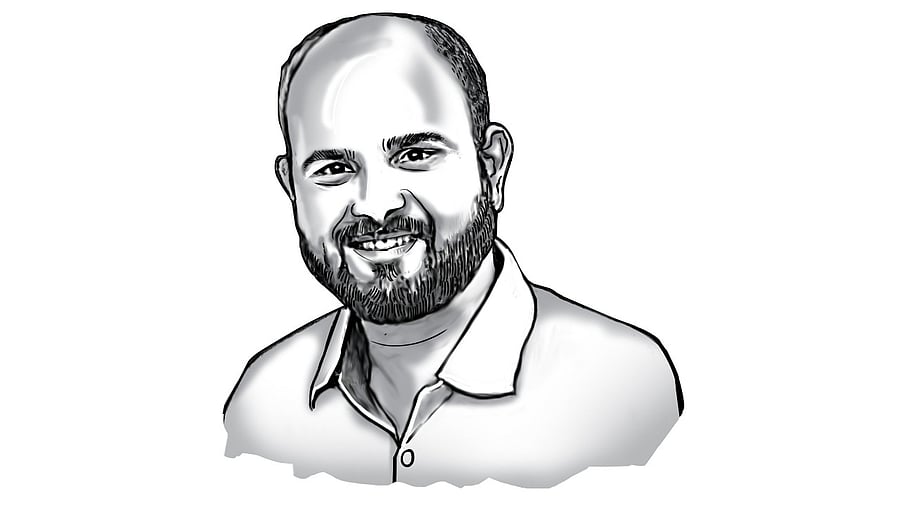
Rahul Jayaram teaches at the School of Film, Media and Creative Arts, R V University, Bengaluru @rahjayaram
Films have played a huge part in the way I think – Amitabh Bachchan was my childhood hero. It was sometime in 1987 that as an eight-year-old, on a summer vacation at cousins’ in Madras, I went to watch a Hindi remake of a superhit Tamil film. Big B was in a double role, Sridevi and Jayaprada were in it, and all were at the peak of their stardoms. In Aakhree Raasta (The Last Option), Bachchan reprised in Hindi what Kamal Haasan essayed in Oru Kaidhiyan Diary (A Prisoner’s Diary) from 1985. As an adult, now I wonder how on earth I was allowed to watch such a film in the cinema hall. I had watched Sholay earlier, and what happened to the upright cop played by Sanjeev Kumar haunted me.
In Aakhree Raasta, Bachchan plays David, a poor, trusting party worker to a good-seeming but ultimately vile politician who rapes David’s wife (Jayaprada). She hangs herself, leaving a note of what happened, and leaves behind their little son. When he seeks justice, the politician, the police, and the lawyers ensure evidence is burned, and Bachchan is framed and jailed for 20 years. In jail, he asks his best friend (Anupam Kher) to ensure that his son grows up to become the most evil person in the world and take revenge for what happened to his mother. To my child’s imagination, that first half of Aakhree Raasta did enough damage along with Sholay that there existed any god. The 1980s are generally considered to be the nadir of Bollywood. Even then, they made commercial hits that could shake you up like Aakhree Raasta. Still a child, I knew I wasn’t watching just a film, but seeing discomfiting reflections of reality that surround me.
As a teenager, I devoured the NFDC films that ripped through the humbug of Indian society. Film after film, story after story, gave me a sense of India, and the world, being a hostile, unfriendly place, with occasional moments of tenderness and beauty, where differently subjugated peoples rebelled at great cost or fought tooth and nail to retain the little they had.
I remember watching Ketan Mehta’s Mirch Masala on a Sunday afternoon on Doordarshan, neighbours and family crowding my family’s poky third-floor northern Bombay suburban flat, since we were perhaps the earliest to get a colour television yet. Almost 15 people were in our hall, many sitting on the floor, and the main door was open for the others to stand and watch. In the morning, they had wept tears over some moment in the televised Ramayana, and bowed to a wooden but beaming Arun Govil playing the god Rama.
Post-lunch, they returned and were fuming over the menacing subedar in Mirch Masala played by Naseeruddin Shah. They cheered Smita Patil and her female supporters as they blinded him with red chilli powder in rural, colonial Rajasthan, shocked into stillness at Shah’s screams that concluded the film.
Yet the general picture I received almost everywhere was that god exists, god is kind, god hears you, god provides succour to the suffering. Over time, at home and outside, it caused grief that I took to serious reading critiquing faith, and fell out with notions of an almighty. To some degree, I felt the idea of god made humans avoid accountability. I provided some films as proof of god’s non-existence. Relationships frayed. I still often hear that the ails of life and age shall cause a softening towards the idea of god inside me. With the world burning each day, I find my irreligiosity even more resolute than ever and wonder how the faithful continue to believe in any almighty.